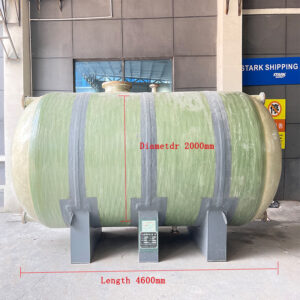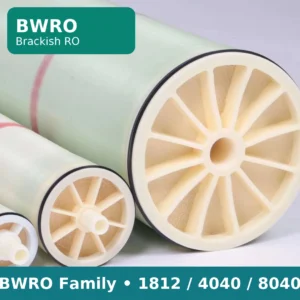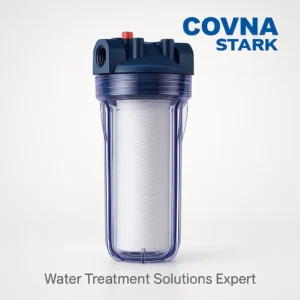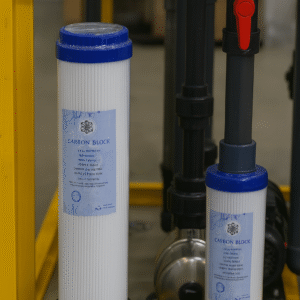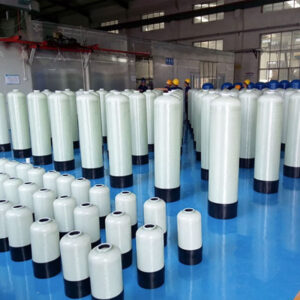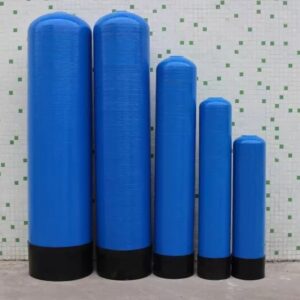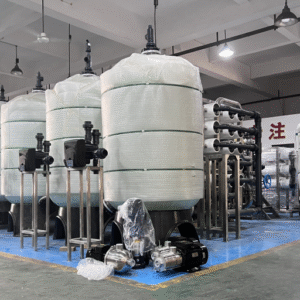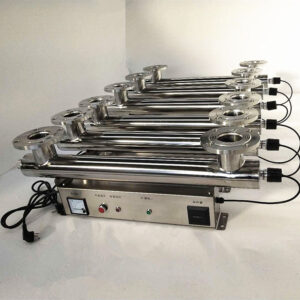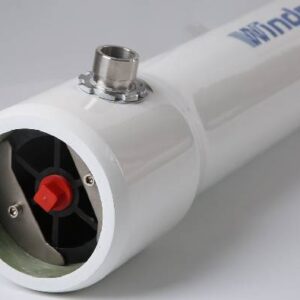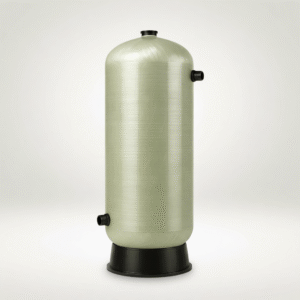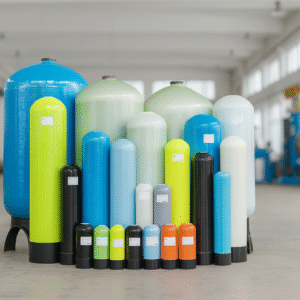Category: Water Treatment Accessories
Industrial water-treatment accessories for RO/UF/EDI systems. In-stock spares, engineering-backed sizing, and compliant materials—built for OEMs, EPCs, and maintenance teams.
Engineering-First Sizing
24-hour selection support with drawings/BOM review for RO/UF/EDI retrofits.
Certified Materials
ISO 9001 process, SS304/316L & FRP vessels, material/pressure test docs on request.
Project-Proven
Installed in municipal, food & beverage, energy, and desalination projects worldwide.
Global Fulfillment
Stock for fast movers, 5–15 day build for OEM kits, export-ready packing.
OEM & Private Label
Custom labeling, documentation bundles (datasheet, MSDS, IQ/OQ templates) available.
Lifecycle Support
Spares planning, warranty terms, and preventive-maintenance checklists included.
Water Treatment Accessories Selection Guide
- Flow & duty: average/peak flow (m³/h), run hours, single/parallel lines
- Water data: TDS, SDI/turbidity, temperature, pH, key ions/metals, UVT (for UV)
- Mechanical: piping size & standard (NPT/BSP/flange), layout, available footprint
- Compliance: required certificates (material/pressure/NSF/CE), document bundle
- Utilities: power spec, ambient constraints
- Replacement strategy: target change-out ΔP / UV lamp hours / resin capacity
Tip — Use the left CTA to send a water report and P&ID/photos; we reply within 24h with sizing and alternates.
- Quick pick: 4040 for ≤2–3 m³/h and compact skids; 8040 for ≥4 m³/h mains; UF upstream for high turbidity/organics.
- Steps:
- Set targets (rejection/retention, permeate flow, recovery) and feed limits (SDI≤5, temp, residual chlorine=0).
- Decide elements per vessel & stages (typical per-element flux depends on temp/fouling).
- Check TMP, end-of-run ΔP, and CIP chemistry compatibility (keep 10–20% margin).
- Compatibility checklist: 4040 vs 8040, spacer thickness/pressure drop when mixing brands, backpressure limits.
- Common pitfalls: no dechlorination; high recovery with poor SDI; ignoring temperature correction for flux.
| Type | Typical target | Notes |
|---|---|---|
| RO | 95–99.5% salt rejection | Recovery 45–75% with antiscalant strategy |
| NF | Hardness/organics selective retention | Lower pressure; partial divalent retention |
| UF | Turbidity/colloids/macromolecules | Improve SDI to ≤3–4 for RO |
| System | Per-Train Capacity | Recovery | Energy (typ.) | Outlet |
|---|---|---|---|---|
| Brackish RO | 1–60 m³/h | 65–85% | 0.7–1.5 kWh/m³ | 10–200 µS/cm |
| Seawater RO | 1–50 m³/h | 35–50% | 3.5–5.0 kWh/m³ | 300–700 µS/cm |
| UF Pretreatment | 1–100 m³/h | — | — | SDI ≤ 3 @15 min |
| EDI Polishing | 0.5–30 m³/h | — | — | ≤ 0.5 µS/cm |
- Quick pick: Corrosive/high-temp → SS316L; standard desalination → FRP (lightweight, corrosion-proof).
- Steps:
- Entry type: end vs side—match skid piping orientation.
- Pressure class: brackish 300–450 psi; seawater/high-pressure 600–1000+ psi.
- Connections: NPT/BSP/flange; brackets/clamps; end-cap style and O-ring spec.
- Checklist: element length & count, vent/drain ports, hygienic vs industrial grade.
- Pitfalls: no allowance for insulation/thermal expansion; wrong port orientation; no pull-out space for elements.
| Spec | Typical |
|---|---|
| 4040 | 1 element/vessel; ≤25 bar |
| 8040 | 1–7 elements/vessel; ≤41 bar (brackish) |
- Quick pick: Pre-RO: 5–20 µm; polishing: 1–5 µm; absolute-rated for critical steps.
- Steps:
- Size & caps: 10/20/30/40″, DOE/SOE (222/226); media PP/PES/PTFE per chemistry.
- Efficiency: Absolute (β≥5000) vs nominal; match particle target & downstream sensitivity.
- Flow/ΔP: rough rule 10″ 5–20 L/min; change-out ΔP 0.8–1.5 bar.
- Checklist: housing length/guide, gasket (EPDM/Viton/PTFE), sanitation method (thermal/chemical).
- Pitfalls: over-fine rating → frequent clogging; no staged filtration; wrong basket for bag filters.
| Micron | Use case |
|---|---|
| 20–50 µm | Coarse protection after sand filter |
| 5–10 µm | Typical RO pre-filter |
| 1–5 µm | Polishing / sensitive steps |
- Quick pick: FRP for most corrosive/ambient duties; steel for high temp/pressure and large flanged nozzles.
- Media filters:
- Surface loading (filtration rate): 5–10 m³/h·m² depending on water quality.
- Backwash intensity: sand 12–18 L/m²·s, GAC 8–15 L/m²·s (30–40% bed expansion).
- Fittings: top vs side mount, laterals/distributors, sight-glass/drain/manway.
- Softeners:
- Resin volume = treated load ÷ working capacity; regeneration by time/flow.
- Common salt dose: 6–10 lb/ft³ balancing efficiency and leakage.
- Pitfalls: insufficient backwash → bed fouling; wrong liner/coating in steel; undersized control valve.
- Quick pick: Small flow/chemical duty → solenoid diaphragm; higher flow/backpressure → mechanical diaphragm.
- Quick formula:Required flow (L/h) = Target dose (mg/L) × Water flow (m³/h) ÷ Solution concentration (%)
Example: 3 mg/L NaOCl, 10 m³/h, 10% solution ⇒ 3×10 ÷ 10 = 3 L/h (×1.2 safety margin).
- Checklist: backpressure (bar), stroke range, wetted materials (PTFE/EPDM/FKM), anti-siphon/back-pressure valves, pulsation dampener.
- Pitfalls: low backpressure → siphoning/overfeed; viscosity change with temp/concentration ignored.
- Quick pick: Post-RO polishing: 30–40 mJ/cm² (higher for critical applications).
- Steps:
- Confirm UVT @254 nm and dose setpoint.
- Select chamber (stainless steel), sensors/alarms, and validation method.
- Prefilter to ≤5 µm; plan sleeve cleaning and lamp change intervals.
- Pitfalls: ignoring UVT swings; no bypass for maintenance; no lamp-life tracking.
- Quick pick: Manual vs automatic (time/flow/ΔP triggers) per process criticality.
- Checklist: thread standard (NPT/BSP) or flange, seal materials (EPDM/FKM/PTFE), Cv/pressure drop, temp/pressure rating.
- Pitfalls: thread standard mismatch; incompatible elastomers; undersized regeneration flow.
FAQ
Can you confirm compatibility with my existing housings/ports?
Do you provide compliance documents (NSF/CE/material/pressure tests)?
Available for selected items; sample files and a checklist can be shared before ordering.
What are typical lead times?
Stock items: 3–5 days. OEM kits: 5–15 working days depending on QC and labeling.
Do you support OEM/private label and spare-stock planning?
Yes—custom labels, datasheets, and buffer-stock programs with warranty and NDA.
How do I get engineering help?
Use the left CTA to WhatsApp/Email. Share water analysis and P&ID—we’ll size and quote.

